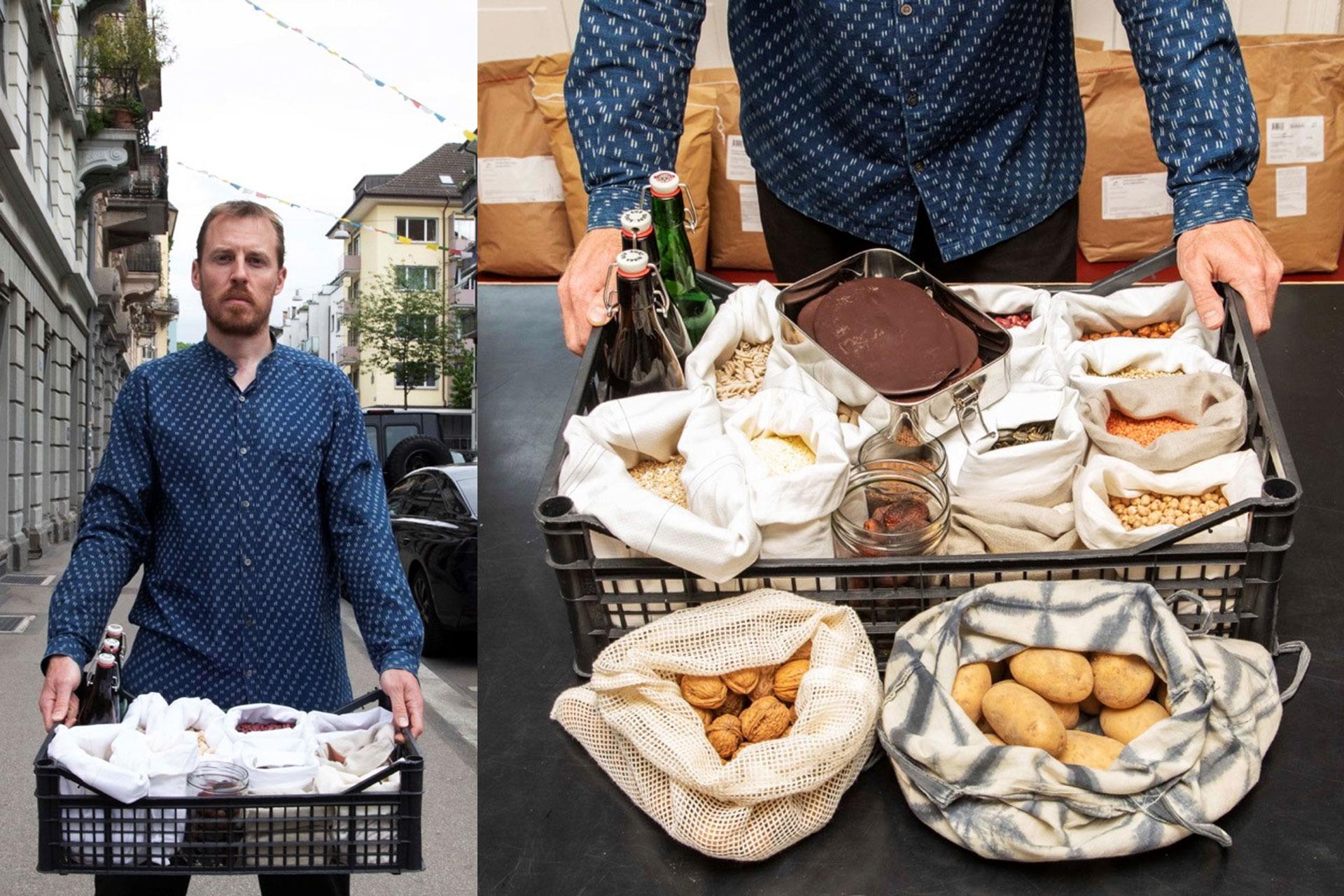BRIDGE Proof of Concept and the ‘non-monetary value creation’

To conclude our series of successful BRIDGE Proof of Concept fellows, find out today about Florian Jakober’s experience and his BRIDGE Proof of Concept project hosted by the Berner Fachhochschule BFH.
Could you describe your BRIDGE Proof of Concept project in a few words?
This concerns foodcoop, which are a food buying club. A neighbourhood community orders in bulk directly from producers to obtain a discount of around 50% on goods. This way, more people can afford local organic food, producers get a fair price, and we open up a huge new customer segment for small-scale local organic farming.
As part of my Design Master of Arts, I developed an optimised model for foodcoops in Swiss urban neighbourhoods and I prototyped a web platform and a starter kit to multiply this model throughout Switzerland. Our goal is to reach 500 Swiss foodcoops by 2030. I have also planned a social enterprise to promote this shopping culture in Switzerland, to act as a point of contact and to moderate and represent the foodcoops as a network.
Did the special call play a role in your decision to submit a BRIDGE Proof of Concept project, or would you have submitted a project anyway?
BRIDGE Proof of Concept was recommended to me by a colleague and yes, I would have participated even without the opportunity of the special call. There are very few Social Design projects previously funded by BRIDGE Proof of Concept. My project evolved from a social initiative and being funded by BRIDGE gave me the confidence of being able to become a a self-sustaining social enterprise that lasts.
Do you feel that BRIDGE Proof of Concept is appropriate to support social innovation?
When I first saw the list of previously supported projects – a lot of technical innovation – I was not very confident about my project. But the BRIDGE Office and the evaluation panel gave me very positive feedback and I hope to see a lot more social innovation projects on BRIDGE in the future, which strike a balance between technical and social innovation.
What remains difficult is to argue for the ’non-monetary value creation‘ that occurs in these projects, because it is not really measurable.
How is your project being implemented?
Before launching the project publicly, I run an incubator to test and optimise the model. This phase is supported by BRIDGE and will give us a solid proof of concept. Find our prototype online on koop.cc. After our Incubator Phase, we’ll be doing a soft launch with housing cooperatives (Wohngenossenschaften). They are the ideal starting points for new cooperatives: they often have shared spaces that are free to use, pre-existing communities and a high ratio of families.